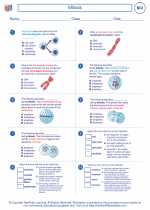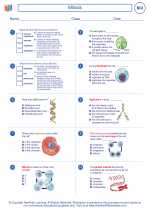Nitrogen Fixation
Nitrogen fixation is the process by which nitrogen gas (N2) from the atmosphere is converted into forms that can be used by living organisms. This is a crucial step in the nitrogen cycle, as nitrogen is an essential element for the production of amino acids, proteins, and nucleic acids in all living organisms.
Types of Nitrogen Fixation
There are two main types of nitrogen fixation:
- Biological Nitrogen Fixation: This process is carried out by certain microorganisms, such as bacteria and archaea, that have the enzyme nitrogenase. These organisms are able to convert atmospheric nitrogen into ammonia (NH3), which can then be used by plants.
- Industrial Nitrogen Fixation: In the industrial process, nitrogen gas is converted into ammonia through the Haber-Bosch process. This ammonia is then used to produce fertilizers and other nitrogen-containing compounds.
Biological Nitrogen Fixation
In biological nitrogen fixation, certain bacteria form symbiotic relationships with plants, particularly legumes such as soybeans, peas, and clover. These bacteria, known as rhizobia, infect the roots of the host plant and form nodules where nitrogen fixation takes place.
Steps of Biological Nitrogen Fixation
- Infection: Rhizobia infect the root hairs of the host plant.
- Nodule Formation: The plant forms nodules in response to the presence of rhizobia.
- Nitrogen Fixation: Inside the nodules, the bacteria use the enzyme nitrogenase to convert atmospheric nitrogen into ammonia.
- Ammonia Assimilation: The plant uses the ammonia produced by the bacteria to synthesize amino acids and other nitrogen-containing compounds.
Significance of Nitrogen Fixation
Nitrogen fixation is crucial for maintaining the fertility of agricultural soils and sustaining plant growth. It reduces the reliance on synthetic fertilizers and contributes to sustainable farming practices. Additionally, nitrogen fixation plays a key role in natural ecosystems by providing a vital source of nitrogen for plant growth and ecosystem productivity.
Study Guide
Here are some key points to remember about nitrogen fixation:
- Define nitrogen fixation and its significance in the nitrogen cycle.
- Identify the two main types of nitrogen fixation: biological and industrial.
- Describe the process of biological nitrogen fixation, including the role of rhizobia in forming symbiotic relationships with plants.
- Explain the steps of biological nitrogen fixation, from infection to ammonia assimilation.
- Analyze the importance of nitrogen fixation in agriculture and natural ecosystems.
Understanding the process of nitrogen fixation is essential in grasping the role of nitrogen in biological systems and its impact on the environment and human activities.
.◂Biology Worksheets and Study Guides High School. Mitosis

 Worksheet/Answer key
Worksheet/Answer key
 Vocabulary/Answer key
Vocabulary/Answer key
 Vocabulary/Answer key
Vocabulary/Answer key
 Vocabulary/Answer key
Vocabulary/Answer key
